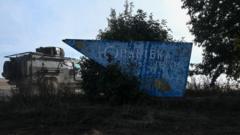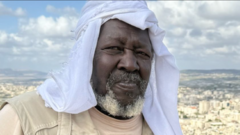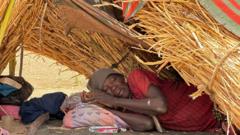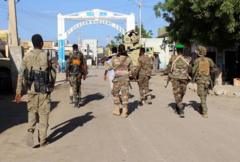In a chilling account, an individual implicated in the killings of Alawite civilians claims to have been guided by governmental security forces during a sectarian assault. As investigations reveal the grisly reality of the violence, survivors call for action and accountability from the new Syrian regime.
Alawite Communities in Syria Targeted Amidst Sectarian Violence
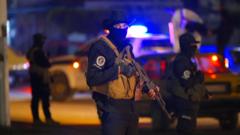
Alawite Communities in Syria Targeted Amidst Sectarian Violence
Eyewitness accounts reveal the extent of the recent wave of violence against Alawite civilians, as a deeply divided society confronts allegations of governmental complicity.
In a startling revelation, a man accused of participating in the recent brutal attacks against the Alawite minority in Syria has described how he and other armed civilians were allegedly overseen by government security forces during the violence. Abu Khalid, who traveled to the coastal village of Sanobar on March 7, claimed that he was instructed to avoid civilian targets. Yet, he was later captured on video executing a local resident, further complicating the narrative concerning state complicity in these sectarian attacks.
The United Nations estimates that nearly 900 civilians, largely from the Alawite sect, were slaughtered by pro-government factions amid escalating violence that erupted following an assault by insurgents. The Alawite community, which constitutes about 10% of Syria’s population, has faced targeted violence and humiliation due to the historical association with the previous regime led by Bashar al-Assad, an Alawite himself.
Eyewitnesses recounted how various armed groups, including militant factions largely financed by foreign entities, converged on Sanobar, where they ruthlessly executed residents, often in broad daylight. Reports of summary executions and retaliatory violence have emerged, creating an air of terror among survivors who feel abandoned by the state's protective forces.
Two months since the horrific events in Sanobar, the village remains shrouded in fear and uncertainty, with a mass grave serving as a grim reminder of the violence. Survivors are reluctant to share their stories publicly, fearing reprisals, yet their accounts tell a tale of loss and desperation.
Abu Khalid's narrative shifts between remorse and defiance; while he acknowledges the killings of civilians like Mahmoud Yousef Mohammed, whom he claims he mistook for an insurgent, the evidence contradicts his defense. His video footage raises serious concerns about the actions of civilians intertwined with armed groups, underscoring the chaos that reigns in the aftermath of the regime change.
Despite a government promise for accountability and justice, many Alawite villagers remain apprehensive about calls for amnesty that could enable the same violators to remain active in the region. As the new Syrian administration grapples with its past atrocities while attempting to maintain order, the fragile state of the Alawite community serves as a litmus test for the symbiotic relationship between the government and various militia groups.
Inaction against unlawful practices may breed further dissent within other marginalized communities, as the future of Syria hangs in a delicate balance, demanding vigilant scrutiny from both domestic and international observers committed to protecting human rights.

